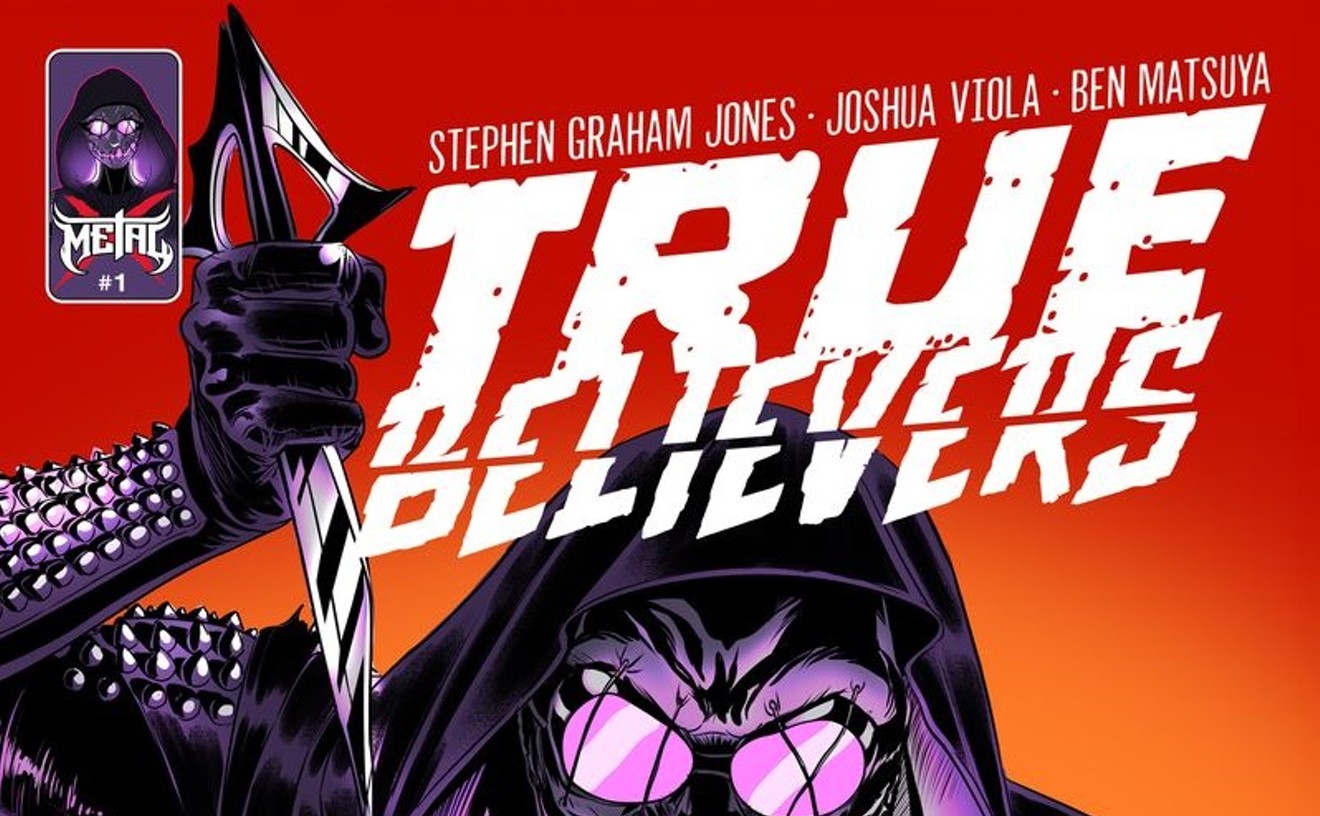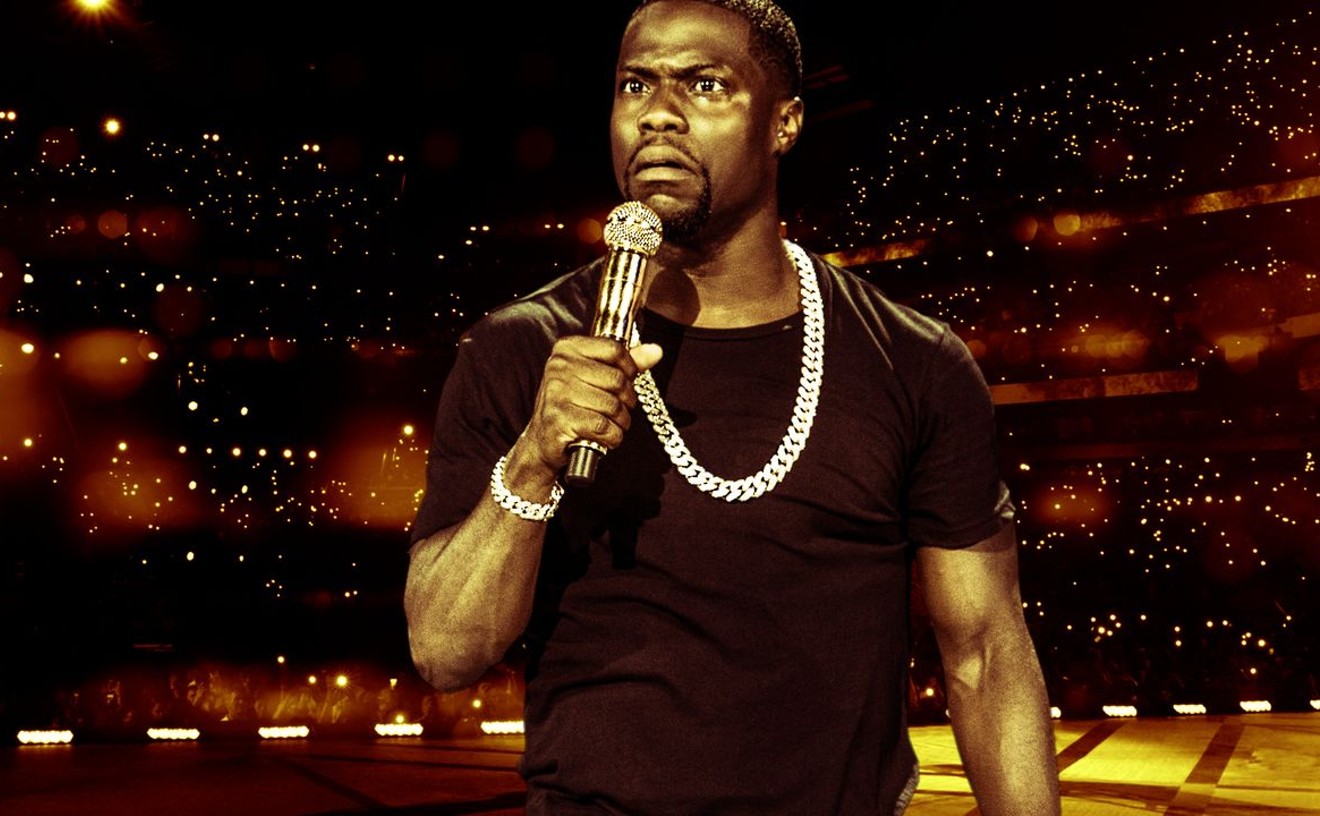See also: Filmmaker Alex Cox on Repo Man, his next project and the beauty of black and white film
TIE's curatorial and administrative headquarters are located in the historic Colorado Building on 16th and California streets, where May and his small team of board members, interns and one union projectionist put together the international events. The cozy space holds a variety of analog projectors and cameras, a library of rare and out-of-print books about experimental film that are available for check out, and a vast collection of film prints that can be projected in the offices. May says he wants the space to act as a place where film lovers who may not have the benefits of an academic setting can further their education, as well as create films of their own. "If you are looking for a non-institutional, non-academic place where you can create films and do anything you want with them -- and it's not for a grade, there are no rules or regulations, there's no censorship -- then you can come here and check out equipment," says May.At the offices, you can also sit down and catch an experimental film, check out a book from the library, or bring in a print to watch. "We had a lady come in with an old film of her grandma's wedding in the late '20s and it was so warped, but we have the best projectors you can get to show warped film," recalls May. "She was just sitting here in tears while we're projecting this. It was a really moving moment."
TIE has recently added film preservation and restoration to its repertoire. TIE Analogs is currently planning a restoration of Rolling Stone film critic Richard Meltzer's Bogus Boxing Trash, a film that currently has no negatives and features rock stars enacting boxing scenarios throughout the streets of 1969 New York City. The purpose of TIE Analogs, May explains, is to preserve the artists's vision of films as well as host them in a place where they won't be lost to the vast vaults of academia. "The problem is that once a big institutional place has their hands around a historical preservation project, sometimes it can be locked up in the vaults for a long time and inaccessible for independent curators and film programmers to show," says May. "Oftentimes the filmmaker's vision is somehow lost because the preservation has taken liberties that somehow don't reflect what the artist's intention was."
To combat that, TIE invites filmmakers to do a residency so they can be in on the entire process of restoring their film, physically participating as well as learning about the process of restoration.
Currently the TIE team is hard at work on its upcoming November 20 to 24 film festival at the Edith Kinney Gaylord Cornerstone Arts Center in Colorado Springs. Alternative Measures: an investigation of artist-run film labs will show over 170 8mm, Super-8, 9.5mm, 16mm and 35mm from all over the world that take a look at the innovative work coming out of artist-run film labs. "An artist-run film lab is a space where a filmmaker can process, edit and print their own films without having to rely on a commercial film lab," says TIE coordinator Alex Richard. "More and more commercial film labs are ditching their old industrial film equipment as the digital age takes over. This old equipment often finds its way into the hands of independent artists who have a passion to work in this medium and a desire for complete control over every step in filmmaking."
The fest will showcase the interesting work coming out of these DIY labs, which Richard says can take the form of anything from "a small portable ice chest to a permanent countryside estate to an antiquated office building in downtown Denver."
The festival, which includes five days of film, panels, lectures, workshops and installations that will attract visitors from around the world, will help extend TIE's vision to promote avant-garde cinema that never makes its way to the megaplex. "Experimental film reaches towards the nascent qualities of cinema itself," says May. "When cinema was started, all they were doing was experimenting with movement. They weren't concerned with plot and all these other things. I feel like there's a lot of marginalized points of view in cinema that are revealed through this type of work."Seeing this form of art is a unique experience that can't be replaced by the draw of digital projection. "It brings a richness to life when we're staring at video screens or computer screens or checkout screens or iPhones all day long," explains May. "When we see a different type of screen culture, for me, it expands my mind and helps me slow down in life and enjoy life a lot more."
TIE's Gifting Soiree takes place Friday, September 13 from 5:30 to 10:30 p.m. at 1615 California Street, Suite 414. Bring a donation of film equipment, footage, books or magazines on experimental film, or a monetary gift, then check out the TIE space, drink yerba mate and Argentine wines, and learn more about all TIE has to offer. Donations are also accepted online and are tax-deductible.
Pre-registration for Alternative Measures is available online, and the staff at TIE is available by appointment so that people can take advantage of the great community resource. For more information, visit experimentalcinema.org, or call 503-298-4984 or e-mail [email protected] to make an appointment.
Follow @WestwordCulture










